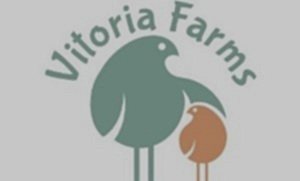Florida Winter Chicken Care Tips for a Happier and Healthier Flock
When people imagine “winter chicken care,” they think of snow drifts, frozen combs, and heat lamps glowing in the barn. But here in Florida, winter looks a little different. Our biggest challenges come from cool nights, humidity, and sudden cold snaps — not deep freezes.
If you’re raising chickens in the Sunshine State, you already know our climate keeps you guessing. One week feels like summer; the next, you’re covering the coop against a surprise frost! Whether you’re tending young pullets or seasoned hens, a few practical adjustments will keep your flock thriving all season long. I usually don’t have to elaborate a whole lot other than to ensure my coops are dry and and draft free. Here is how:
🏡 Keep the Coop Dry, Not Sealed
Florida winters are mild but damp — and moisture is a chicken keeper’s real enemy. Chickens tolerate cold far better than humidity trapped in a closed coop.
Best practices for outdoor coops:
Ventilation over insulation. Leave vents near the roofline open for airflow. This prevents condensation that can cause frostbite and respiratory issues.
Block direct drafts at roost height. A bit of weather stripping or a feed sack tacked along the north wall works wonders.
Use dry bedding. I recommend hemp (like this highly absorbent brand on Amazon) — highly absorbent, keeps the surface dry, and keeps the moisture levels low.
Raise feeders and waterers. Keeping them elevated helps prevent mold and soggy feed. Try this metal stand to elevate bucket feeder and waterer for convenience and cleanliness. We use these to elevate our DYI bucket feeders.
🐥 Caring for Young Chickens in Cool Weather
Got a late hatch? Florida’s mild winter makes year-round chick raising possible — with a few safety measures.
Practical tips for chicks and pullets:
Use a radiant heat plate (like this chick-safe brooder heater) instead of a traditional bulb. It’s fire-safe and energy efficient.
Draft-free brooder zone. Keep young birds away from open windows or doors, but ensure some air exchange.
High-energy feed and treats. Chicks need calories to grow and stay warm — a sprinkle of mealworms or chick-safe scratch is perfect.
Gradual acclimation. Before moving outdoors full-time, give short supervised outings during mild afternoons to help them feather out.
🐓 For Adult Hens and Roosters: Focus on Comfort, Not Heat
Mature chickens handle 40°F nights just fine, but they still appreciate thoughtful care.
Cold-weather tips for adult flocks:
Provide windbreaks. A tarp or bamboo panel on the north side of your run blocks chilling breezes.
Offer evening scratch grains. A scoop of organic scratch feed or even whole corn helps them generate warmth overnight.
Fresh, unfrozen water. In North Florida, use an insulated or heated waterer to prevent freezing.
Protect combs and wattles. If a frost advisory pops up, rub a thin layer of coconut oil to guard against frostbite.
🌞 Let the Sunshine Do Its Work
Winter in Florida is prime chicken time — less heat stress, fewer parasites, and lots of sunny days. Encourage afternoon free-ranging or dust bathing to keep your flock active and happy.
If you’ve got the space, plant winter greens like clover or ryegrass for natural foraging and extra nutrition.
🌾 My Favorite Winter Chicken Care Essentials
(Amazon Associate links — I earn a small commission if you purchase through these, at no extra cost to you.)
🪵 Aubiose Hemp – clean, cozy, and moisture-absorbent
🔥 Radiant Chick Heat Plate – safe and energy-efficient warmth
🍳 Organic Whole Corn – boosts warmth and keeps hens content
💧 Heated Chicken Waterer – ensures fresh water on cold mornings
🌿 Mealworms Treats for Chickens – protein-packed winter snack

